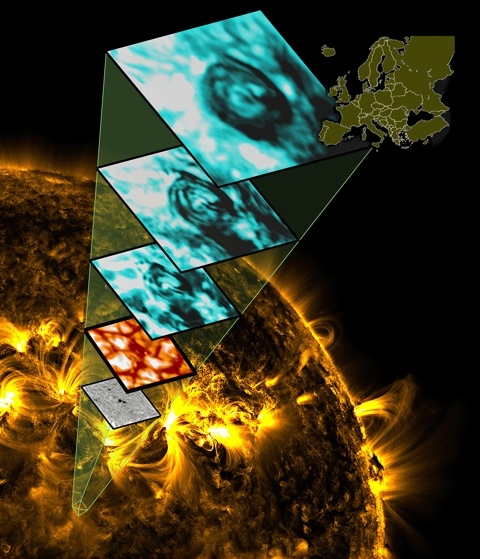The total power emitted in x rays is only about one millionth of the sun s total luminosity so there is enough energy in the sun to heat the corona.
The solar corona is a very hot atmosphere surrounding.
It appears as white streamers or plumes of ionized gas that flow outward into space.
The material in the corona is an extremely hot but very tenuous plasma.
Although the solar corona is very hot it also has very low density.
The solar corona is the outermost layer of the sun s atmosphere a very hot halo millions of degrees that in the form of the solar wind extends well past the earth s orbit.
Yet the corona is hundreds of times hotter than the sun s surface.
The gas pressure in the corona is about 0 03 pa.
A nasa mission called iris may have provided one possible answer.
The solar corona is a very hot atmosphere surrounding the visible surface of the sun.
During a total solar eclipse it s possible to see clear naked eye evidence of where the sun is in its cycle.
X ray emissions from the corona showthat its temperature is about.
The mission discovered packets of very hot material called heat bombs that travel from the sun into the corona.
The temperature in the corona is more than a million degrees surprisingly much hotter than the temperature at the sun s surface which is around 5 500 c 9 940 f or 5 780 kelvins.
The corona is in the outer layer of the sun s atmosphere far from its surface.
Totality when the moon completely blocks the sun s bright disk affords a brief view of.
The solar corona is a very hot atmosphere surrounding thevisible surface of the sun.
The corona is observed in detail during solar eclipses.
The gas pressure in the corona is about 0 03.
It can only be seen during a total solar eclipse as well.
Daytime morphs into a 360 degree dusk and where the sun once hung a black hole punches through the sky wreathed by a white ethereal glow.
The third layer of the sun s atmosphere is the corona.
The pressure and density in the corona is much much lower than in earth s atmosphere.
Estimate the number density of particles inthe solar corona.
Therefore only a small fraction of the total solar radiation is required to power the corona.










